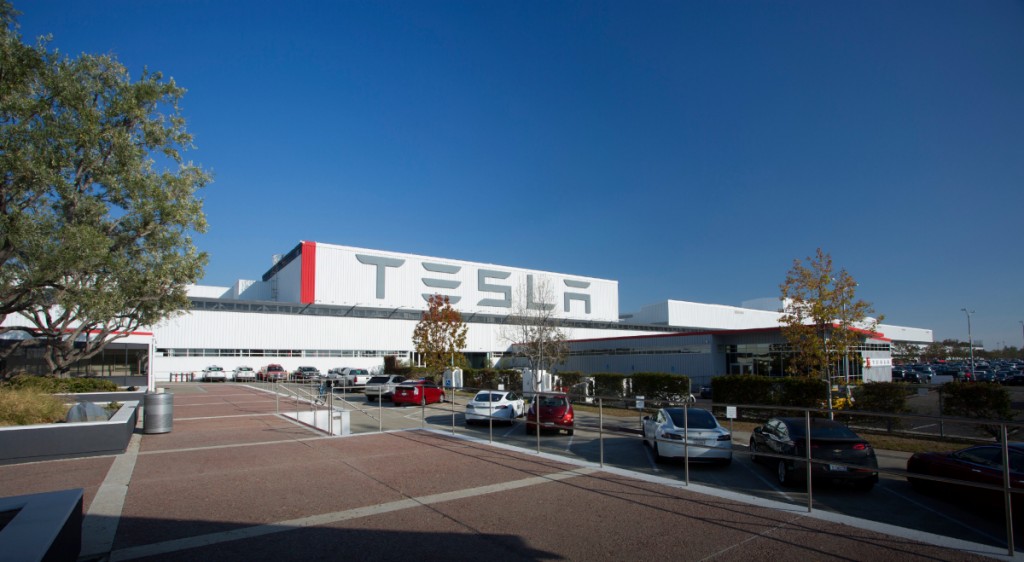Following news China will scrap limited ownership rules for foreign automakers by 2022, Tesla has taken the first steps to form its independent Chinese operation.
The Wall Street Journal (subscription required) reported Monday that Tesla has filed to set up a Shanghai division as the sole owner called Tesla Shanghai Co. Ltd.
Under China's newly announced ownership regulations, the rules will begin to change this year with the cap lifted on any foreign-invested shares in electric and hybrid cars. Tesla, obviously, falls under said distinction.
By 2020, China will remove the cap on any commercial vehicles, and in 2022, all other foreign automakers will be free of ownership rules.
Tesla factory, Fremont, California
For years, China has required foreign automakers to set up joint-venture businesses together with local firms. Automakers that decide against a joint-venture must export cars to China and face a 25 percent tariff, which Tesla has so far been doing. Tesla CEO Elon Musk has called the tax a burden in the past.
Musk also told analysts in an earnings call on May 2 that the automaker is close to announcing Shanghai factory plans. Last year, Tesla reportedly received approval for a Shanghai-based plant.
Although Tesla will be free from sharing profits and proprietary technology with a partner, the electric car company will still face a hurdle: the Chinese supply chain. Setting up a local supply chain without a domestic automaker could prove difficult, according to analysts cited in the report. The individuals also claimed it would take three years before the automaker can officially begin Chinese vehicle production. The majority of Tesla production should remain at the company's California facility. A Dutch site handles some light European production.
China has implemented an incredibly aggressive strategy for electrified vehicles, known locally as "new energy vehicles." The country aims to reach seven million electric car sales by 2025. Tesla could take advantage of the immense opportunity. Right now, Tesla cars in China are around 50 percent more expensive than they are in the U.S. due to tariffs. Independently owned production will change that.